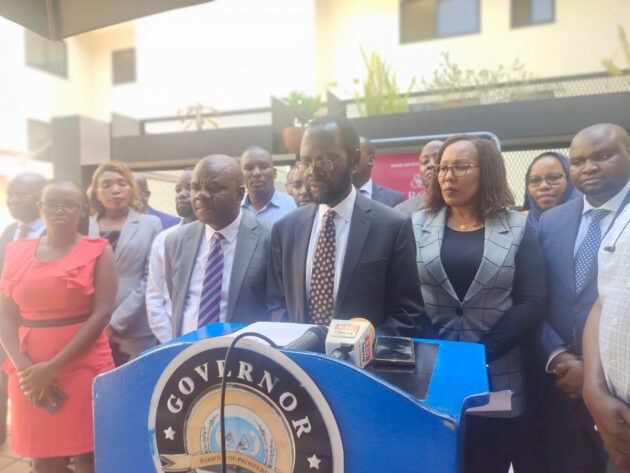
Governor Nyong’o accuses national govt of undermining devolution » Capital News
KISUMU, Kenya May 27 – Kisumu Governor Anyang Nyong’o has raised concerns that devolution is under threat from the Kenya Kwanza administration.
As the lands, housing, and urban development committee chairperson for the Council of Governors (CoG), Nyong’o claims the National Government is determined to undermine devolution.
Speaking in Kisumu on Monday during the official opening of a national dialogue on urban development, Nyong’o called on the government to gazette all transferred functions and the resources aligned to them.
He criticized the involvement of road authorities in county projects without consulting county executives, arguing it goes against the spirit of devolution.
“Those authorities coming to build the roads are completely contrary to the spirit of devolution,” Nyong’o stated.
Nyong’o emphasized that the gains made in devolution are being eroded under the current administration. He urged the national government to stop actions that threaten devolution, asserting that funds must follow functions in the counties.
He warned that continued centralization of county functions would lead to inefficiencies and economic waste.
“Our clarion call is, we must defend devolution,” he declared. “If the threat to devolution mounted by the current regime continues, then Kenyans are bound to lose a lot in terms of service delivery.”
The national dialogue forum, which brought together city and municipal managers, focused on building thriving cities and municipalities in the country. Nyong’o highlighted the need to review the Urban Areas and Cities Act, 2011, and discussed the importance of the Affordable Housing Act and the role of city and municipal boards in implementing the housing agenda.
“Cities and urban areas are engines of growth and innovation, but they also face complex challenges,” Nyong’o noted.
He concluded that the forum presents an excellent opportunity to address critical emerging issues in the urban sector and to ensure that devolution remains intact for the benefit of all Kenyans.
